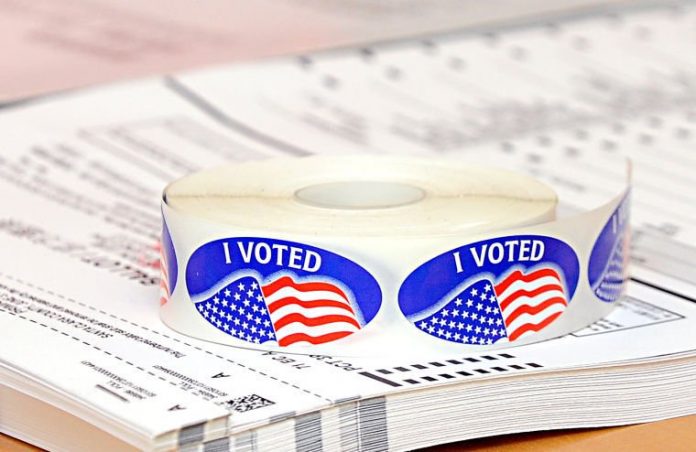
GILROY—Incumbents for the Gilroy City Council, newcomers and anyone who decides to run for local office can now spend double what has been allowed in past campaigns.
A split council voted 4-3 on July 1 to raise the individual campaign contribution limit to historic levels, from $200 to $750, and the voluntary campaign expenditure ceiling to $53,000—up from $26,000.
“The 50 cents-per-person is a limit that was way too low,” Councilman Perry Woodward said. “(The decision) was the result of advice we got from the city attorney.”
A revision of Gilroy’s law establishing campaign contribution and expense limits, in effect since 1983, was necessary following a U.S. Supreme Court decision that stated the ability to contribute to elections is equal to free speech under the First Amendment, according to City Attorney Andy Faber. He told the council that means Gilroy’s ordinance was unconstitutional.
Some citizens raised concerns at the June 18 meeting about potentially negative consequences of raising the limits—from shutting out grassroots candidates to allowing more influence from unseen financial backers. But no members of the public spoke at last week’s meeting and the council minority, previously vocal about their opposition, was silent when the ordinance was up for a second and final reading July 1.
“I’m good with raising it, but doubling (the expenditure ceiling) is too much,” said Councilman Dion Bracco, who voted against the move with fellow council members Cat Tucker and Roland Velasco. “It’s giving developers and those who want things done a certain way big leverage on the council. It’s quieting the people who can’t afford to raise that kind of money to run for office.”
Review of the law was necessary after Woodward asked the city’s contracted legal firm, San Jose-based firm Berliner Cohen, how the U.S. Supreme Court ruling in the McCutcheon case affected the homegrown law.
But why raise them now? Mayor Don Gage and Woodward point to rising costs of living and the associated costs of funding a campaign, saying candidates have to fork over more cash now and some have to hire consultants to help guide campaigns.
While the voluntary limit has been in effect since 1997, and the individual limit has been fairly stable since 1983, candidates for the 2016 election can now raise more money.
“This isn’t coming out of left field. This is coming out of the Supreme Court,” Woodward said Tuesday. “Faber said the ordinance, as it stood, is not something he’d recommend the city try to enforce…we needed to move forward.”
If the U.S. Supreme Court is concerned with preventing the limitation of citizens’ ability to contribute financially to politics, Gage said a candidate having to pick and choose recipients of a pre-election mailer because he or she can’t afford to blanket the city is “stifling somebody.”
Raising Gilroy’s expenditure ceiling from $26,000 to $53,000 puts the city in a “legally defensible” position if the courts take issue with the city’s law, Councilman Peter Leroe-Munoz said.
The council had an opportunity to adjust the increases, but nobody on the dais followed through. Assistant City Attorney Jolie Houston reminded the council at the July 1 meeting Berliner Cohen “plugged in” $750 and $53,000 in the city’s existing ordinance following a suggestion by Gage to use those numbers.
The high court’s ruling also struck down the financial benefit candidates receive when they adopt a voluntary expenditure ceiling in cities like Gilroy—$100 per election.
On the other hand, independent campaign committees and labor groups can give candidates as much as they want, City Administrator Tom Haglund clarified.
Gilroy’s new law allows the wealthy to contribute “a lot more” than they have in the past to local politics and potentially influence the decisions candidates make once they’re in office, as one resident pointed out.
“More money doesn’t necessarily get you to where you want to be and it turns off the public,” Connie Rogers, a former council member, said. “I think the limits we’ve had in the past are fine.”
Planning Commissioner Tom Fischer, also a candidate for the council in the most recent election, put it more bluntly.
“Money in politics is one of the things people hate the most. The more money you allow into politics, the worse it’s going to get,” he said.
According to Velasco, Gilroy’s expanded ceiling for campaign spending “only benefits the incumbents.” He said he’d have preferred to see individual contributions maxed out between $400 and $500.
Nobody on the council advocated for keeping the limits as they were. All, in fact, spoke out in the past two months about the need to increase them. It was simply a question of how much.
Some took aim at the premise that candidates need to spend big in the Garlic Capital to get elected, questioning whether the increased limits will allow for more influence on local politics by the financial backers of candidates either on the campaign trail or while they’re serving as elected officials.
“I want my city council to be independent,” Fischer said. “It’s a lot harder to be independent when you have to collect the big dollars to hire consultants—and I personally believe city council candidates do not need to hire consultants in a community our size.”
Like Rogers and Bracco, Fischer said he fears increased limits will prevent people from getting involved in local politics.
“It will intimidate people from running for office,” he said. “When you look at the amount of money in those limits, you immediately think you have to have that much money to mount a campaign. If you don’t have connections in town, you don’t know where to raise that kind of money…you don’t have to raise it that high and can still run a campaign.”
Woodward said he believes a lot of the “campaign finance angst” is “rightly directed at what’s going on at the national and state level.”
“Local campaigns are expensive. It costs money to get your message out there,” Woodward said.
But instead of hiring a consultant for $10,000, as Gage suggested, Rogers had one piece of advice: Use more lawn signs.
“They’re five bucks a piece if you buy 100 at a time,” she said.
The ordinance takes effect July 31, City Clerk Shawna Freels said.
1983: the city establishes an individual contribution limit of $200 with no ceiling on overall campaign expenditures
1997: the city raises the individual limit to $250, establishes a ceiling of 35 cents per resident
2003: the city maintains $250 individual limit, bumps expenditure ceiling to 50 cents per resident
2015: the city adopts a $750 individual contribution limit and raises the expenditure ceiling to $1 per resident
Source: City Clerk Shawna Freels













